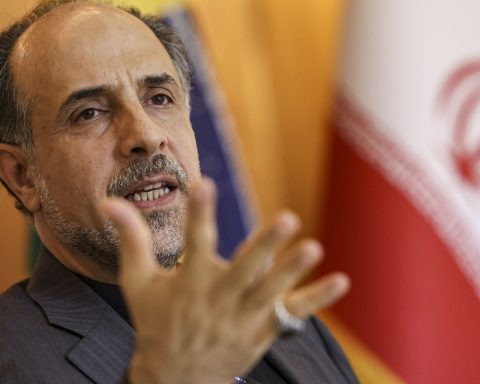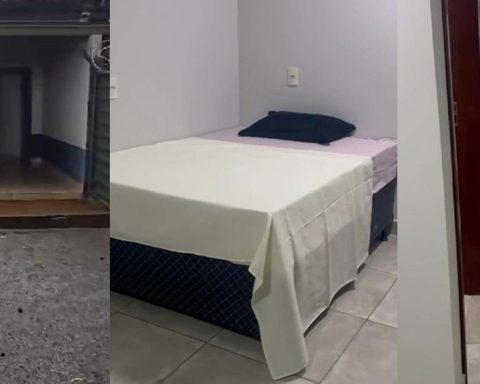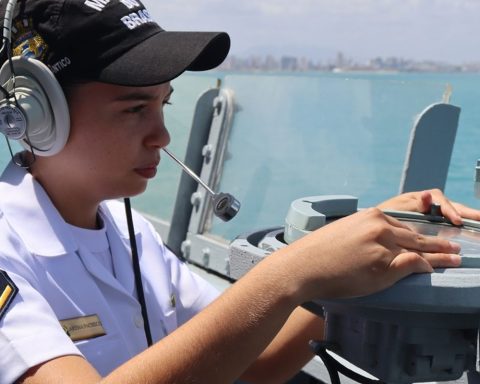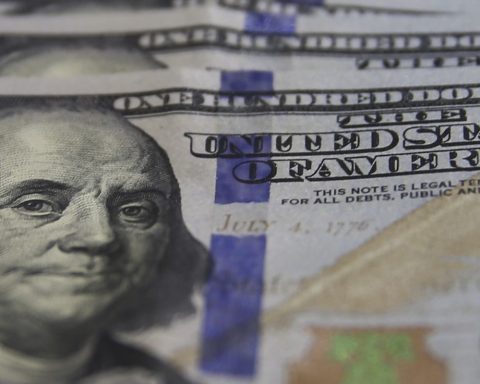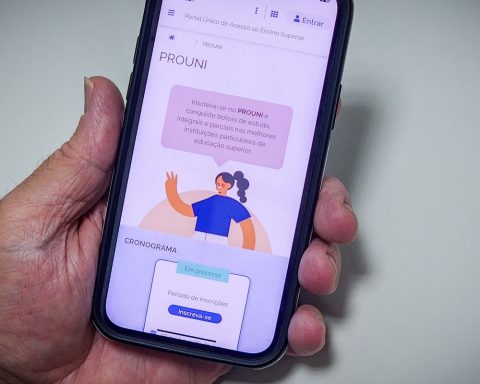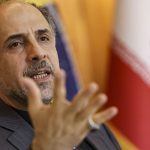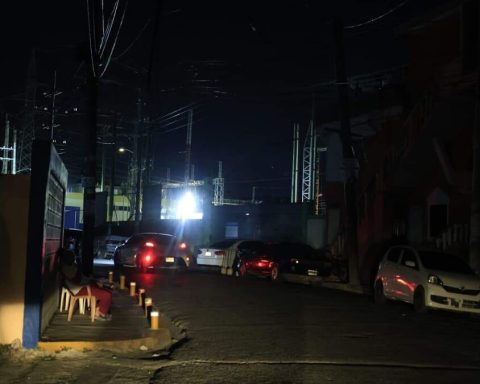After years of prohibition, the National Bank for Economic and Social Development (BNDES) will once again finance development and engineering projects in neighboring countries, President Luiz Inácio Lula da Silva said today (23). He made the statement accompanied by the Argentine president, Alberto Fernández, in a meeting with Brazilian and Argentine businessmen during his trip to Buenos Aires.
According to Lula, the performance of the development bank is important to guarantee Brazil’s leading role in the financing of large enterprises and in the development of Latin America.
“I will tell you one thing. The BNDES will once again finance trade relations in Brazil and will once again finance engineering projects to help Brazilian companies abroad and to help neighboring countries to grow and even sell the result of this enrichment to a country like Brazil. Brazil cannot stay away. Brazil cannot become small”, declared Lula.
In the speech, the president also defended that the BNDES lend more. “It’s been exactly four years since the BNDES hasn’t loaned money for development because all BNDES money is turned to the Treasury, which wants to receive the loan that was made. So, Brazil also stopped growing. Brazil has stopped developing and Brazil has stopped sharing the possibility of growth with other countries,” he said.
In the previous government, the BNDES carried out audits on loans to Latin American countries in the past decade and released the result on a special page on the institution’s website. Investigations found no irregularities.
bilateral relationship
Alongside Fernández, Lula highlighted the importance of the bilateral relationship between Brazil and Argentina. The country is the third largest destination for Brazilian exports and the main market within Latin America. In turn, Brazil is the country from which Argentineans buy the most. Trade is concentrated in the purchase of Argentine wheat by Brazil and in the sale of automobiles and vehicle parts by Brazilians to the neighboring country.
“Argentina is, throughout Latin America, Brazil’s main trading partner. Argentina and Brazil traded more than Brazil and Italy, more than Brazil and England, more than Brazil and France, more than Brazil and Russia, more than Brazil and India,” declared Lula.
During the event, Lula said that Argentina’s position in foreign trade needs to be valued. “Argentina is Brazil’s third largest trading partner, second only to China and the United States. This has to be valued. This can only be valued, not on account of presidents, but on account of businessmen. Are you [os empresários] who know how to do business, who know how to negotiate,” added the Brazilian president.
On the Argentine side, Alberto Fernández welcomed the resumption of high-level talks between the two nations. “What we are doing is to make the links between Brazil and Argentina work again, links that were damaged”.
The two presidents also received a joint document prepared by the National Confederation of Industry (CNI) and the Argentine Industrial Union (UIA) with proposals to boost trade relations between the two countries, and with other trade partners, especially from Mercosur.
common currency
Before the event with businessmen, Lula met with Fernández. At the end of the meeting, she said that the two countries are working common currency design, which would function as a digital clearinghouse that would reduce the need for dollars in commercial exchanges between Brazil and Argentina.
“I think, over time, that [a moeda comum] It will happen, and it needs to happen. If it were up to me, we would always have foreign trade in the currencies of other countries, so that we would not have to depend on the dollar. Why not try to create a common currency between the two countries, with Brics countries [grupo formado por Brasil, Rússia, Índia, China e África do Sul]?” said Lula.
The common currency would be a unit of value linked to the Argentine peso and the real, but it would not imply a single currency, with each country maintaining its own currency. During the visit to Argentina, it was agreed that the two countries will create a working group to analyze the viability of the common currency, with analyzes that will take years. According to Lula, an eventual project will only be presented “after many debates and meetings”.
special financing
During the trip, a proposal for a financing mechanism for exports of manufactured products from Brazil to Argentina will be presented. Brazilian public and private banks would grant loans in reais to Argentine importers who buy industrialized products from Brazil. The Brazilian bank would advance the money to the seller and charge the Argentine buyer.
The two countries would provide guarantees (resources to cover possible defaults and prevent interest rates from rising). The National Treasury would use funds from the Export Guarantee Fund. The financing would only be released when Argentina offers the equivalent amount in reais, through securities or contracts with international circulation deposited in the United States, England or Brazil.
The mechanism would work similarly to the financing granted by China to Argentine importers since 2019. The difference is that the Asian country provides swap contracts (currency exchange), which pass through the central banks of China and Argentina.
* Collaborated with Pedro Rafael Vilela

